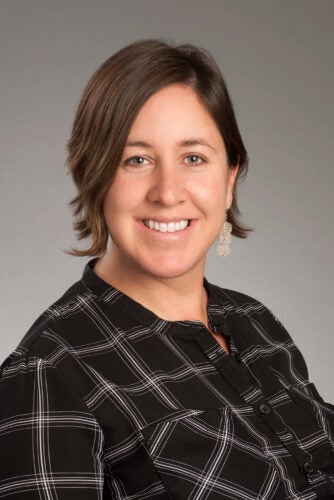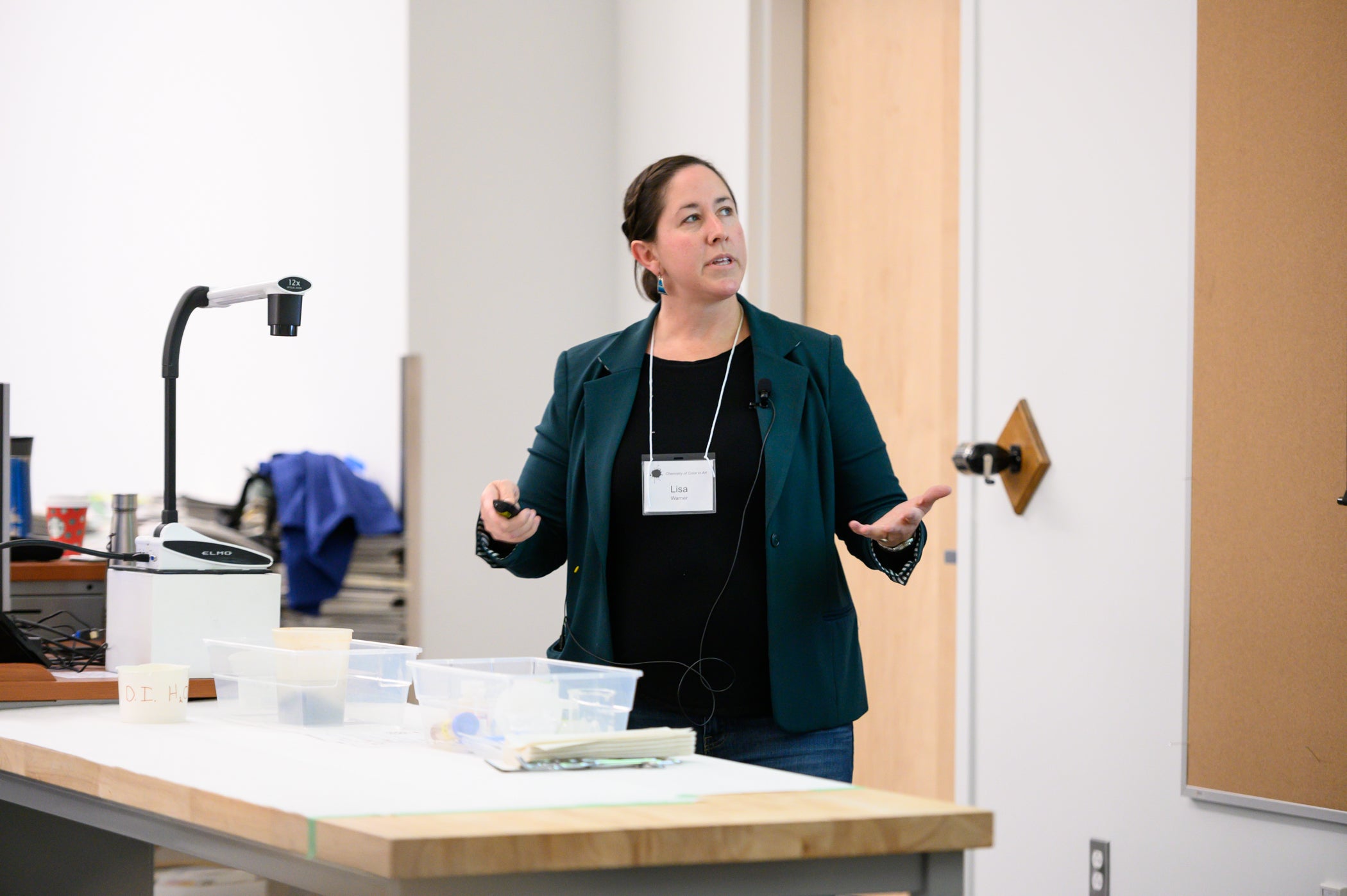
Collagen; it’s basically the glue that keeps the human body together, explained Lisa Warner, an assistant professor of chemistry and biochemistry and alum of Boise State University (B.S., chemistry, ‘02). It is the most abundant protein in the human body and its role in healing wounds is critical. That decades-old scar on your knee from a skateboard mishap? Thank collagen for helping pull it all back together.
But sometimes the body struggles to regulate the production of collagen and produces either too much or too little, and the wound does not heal properly. This is a condition known as fibrosis. It can impact any organ where collagen is found, such as the heart, liver, lungs, and skin. The reason for this dysregulation of collagen is still not fully understood, but with the help of her colleagues and students, Warner is determined to change that.
Recently, Warner received a grant of over $400,000 from the National Institute of General Medical Sciences to dive into this mystery. With this award, Warner and her research collaborator Karen Lewis of Texas State University will study the early stages in collagen production, in which the DNA gene for collagen is transcribed and turned into RNA. The goal is to understand the mechanisms of translation regulation of collagen so that it might be possible to design novel drugs or therapy to treat fibrotic diseases.
Another exciting element of the research for Warner is the capacity to create first-hand biomedical research experiences for undergraduate students—experiences that proved critical to her own success as a first-generation Boise State student.
“I grew up in a rural farming community in Idaho, and barely made it to the university. Staying and finishing [my degree] was something that was not a given. One of the things that really kept me going was doing research as an undergrad. That really took me to the finish line,” Warner said.

Since joining Boise State’s faculty, Warner seeks to create similar opportunities for her students. According to Jackson Wall, a Boise State alum (B.S., Health Sciences, ‘20) from Ucon, Idaho, Warner’s mentorship and the research experiences she made available to him not only had a profound impact on him as a first-generation student but also helped him to secure his current job.
“Dr. Warner and I met by chance and retrospectively that was one of the most critical moments of my college career,” Wall said. “I’m a better community member, professional, and scientist because of her. I actually ended up landing a job on a COVID cross-functional team at the Department of Health and Welfare. I am using many of the skills I learned in the lab every single day at work, and I was told by my employer that my research experience played a massive role in me getting my current job.”
Warner is eager to use this grant to create paid research opportunities for students in her lab, and in her Vertically Integrated Project (VIP) course, “Let’s Light Up Science.” In his time at Boise State, students including Wall helped develop this research course.
“The research lab is the magnet that keeps people on campus, especially when you have to wait tables 30 hours a week like I did,” Warner said. “There are so many things that pull you away from university and studying. I see this as enabling students to be the successful students they can be because I know they can.”
For more information about this award, visit: https://reporter.nih.gov/search/6ukir3FPb0iWbwfdW-DluQ/project-details/10202324
-By Brianne Phillips